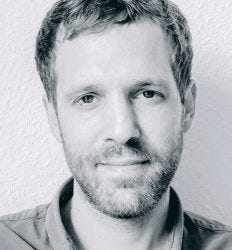Do psychedelic treatments always require psychotherapy?
Guy Goodwin of Compass says no, Max Wolff of MIND says yes.
Yesterday was our third Psychedelic Safety Seminar. This one was a debate between Dr Guy Goodwin, chief medical officer of Compass Pathways (a leading company attempting to develop psychedelic treatments), and Dr Max Wolff, head of therapy and training at the MIND Foundation, on the question: ‘Do psychedelic medical treatments always require psychotherapy?’
Dr Goodwin thinks not, and has written a paper arguing that, for psilocybin therapy at least, ‘psychological support’ is all that seems to be needed, rather than full-blown licensed psychothapy.
He suggested that, on high doses of psilocybin, ‘it is not really possible for a patient to interact very meaningfully with a therapist’. Rather, they are on an inward journey. They may have preparation sessions before a trip, and integration sessions after, but this does not apparently need to be done by a licensed psychotherapist – and indeed, when high dose psychedelic therapy has been practiced in Switzerland, Dr Goodwin says it is not always facilitated by psychotherapists.
He argued:
There are other reasons to think of the clinical effects as being more related to the drug than the psychotherapy. And the first of these considerations is that drugs, unlike psychotherapy, have a very clear dose-response relationship. The higher the dose, the more the effect.
He concluded:
I think the psychedelic assisted psychotherapy is a too pervasive expression. And while we're far from understanding how serotonergic drugs work, we should use more neutral terminology and not anticipate the outcomes we may desire but cannot prove.
Dr Max Wolff, in response, argued that psychedelic treatments, good ones anyway, always do involve psychotherapy. He also has a new paper out arguing this viewpoint, published in The Lancet this week.
He pointed out that Compass Pathways’ own trial protocol emphasized the importance of the ‘therapeutic process’ – it says:
‘Preparation focuses on establishing the therapeutic alliance between therapist and participant…’
‘Therapists aims to build the participants capacity to navigate distressing experiences through self directed and free inquiry and experiential processing.’
‘The patient is encouraged to maintain a courageous, trusting and open attitude in order to move in and through the full range of internal experiences.’
‘The therapeutic focus of integration is to reflect on the experience and generate insights following the psilocybin session.’
‘Participants are encouraged to describe and connect with the range of emotional, cognitive and physical experiences of the psilocybin session and relate to them to their personal narrative.’
Dr Wolff concluded: ‘This sounds a lot like psychotherapy.’
He also noted that according to Compass’ own trial protocol:
‘All therapists must be healthcare practitioners with a professional licence in good standing, they must have demonstrated clinical experience in areas required for psychotherapy or mental health counselling, with an average of 25 years experience.
He posed a question to Professor Goodwin: what do the Compass study therapists think? Would they say that this treatment is psychotherapy or not?
Dr Wolff mentioned that it may be so that the FDA struggles with how to evaluate psychotherapies. Nonetheless,
I believe ethical obligations and professional standards of psychotherapy should be applied, regardless of whether or not regulators recognise that psychedelic therapy includes psychotherapy.
Both speakers then had 10 minutes to respond to each other’s points.
After the paywall, more edited highlights, questions from the audience, and the full video of the debate for paid subscribers, plus some other recent news.





